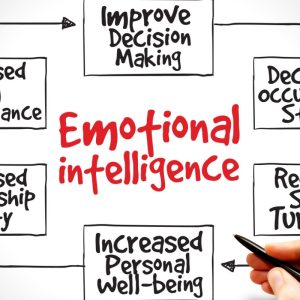
Emotional intelligence (EI) has emerged as a critical leadership competency in the 21st-century corporate landscape. It’s more than just a buzzword, especially in sectors like gambling. Its impact is tangible, from facilitating effective communication and enhancing decision-making to fostering a positive work environment and boosting productivity.
EI’s significance is primarily due to its central role in interpersonal relationships. The ability to connect with colleagues emotionally is crucial because workplaces are essentially a tapestry of relationships among individuals with diverse temperaments, competencies, and backgrounds. This trait is particularly relevant for leaders who must inspire, guide, and engage their teams to accomplish collective objectives.
Research consistently highlights the role of EI in leadership effectiveness. A leader’s emotional intelligence can influence employees’ job satisfaction, turnover intentions, and organisational commitment. Moreover, EI equips leaders with the empathy to understand their team’s perspectives, the self-regulation to manage their responses, and the social skills to foster a collaborative and respectful work environment.
However, cultivating EI is not an overnight endeavour. It requires deliberate and sustained effort. Here’s a more detailed exploration of strategies to nurture EI:
- In-depth Emotional Intelligence Training: Comprehensive workshops or seminars can be instrumental in driving awareness of EI and its benefits. These sessions can cover various facets of EI, from recognising and regulating emotions (self-awareness and self-management) to understanding others’ feelings and appropriately responding to them (social awareness and relationship management).
- Emotional Intelligence-Based Recruitment and Promotion: While technical skills are essential, EI should be a core component of recruitment and promotion decisions. You can assess EI through behavioural interview questions, situational judgement tests, or EI-specific assessments like the Emotional and Social Competency Inventory.
- One-to-one Coaching or Mentoring: Personalised coaching can help leaders understand their emotional patterns, identify areas for improvement, and devise effective strategies for growth. This coaching can encompass a variety of methods, such as mindfulness exercises to boost self-awareness or role-play scenarios to enhance empathy and relationship management skills.
- 360-Degree Feedback Mechanisms: Constructive feedback can shed light on leaders’ emotional strengths and areas of improvement. Establishing a feedback-rich culture where colleagues feel safe discussing emotional behaviours and their impacts is essential.
- Leadership Example: Senior leaders should lead the EI charge by modelling emotionally intelligent behaviours. Their commitment to EI can influence the organisation’s emotional culture and encourage others to develop these skills.
- Ongoing Assessment and Support: Regular check-ins and assessments can track leaders’ EI development over time, ensuring they remain committed to their growth. These assessments should be followed by adequate support in the form of additional training or coaching, if necessary.
Investing in EI development can yield substantial dividends for both leaders and organisations. Leaders with high EI are often more effective, adaptable, and resilient – all crucial traits in the rapidly evolving gambling sector. They can navigate through challenges and uncertainties with a level-headed approach, make sound decisions under pressure, and foster an environment that fuels collaboration, respect, and productivity.
Cultivating emotional intelligence is not a luxury but a necessity for contemporary leaders. By prioritising EI in your personal growth and your teams’ development, leaders can pave the way for a more empathetic, understanding, and effective workplace. It’s not just about becoming better leaders; it’s about fostering better work environments where everyone can thrive.

